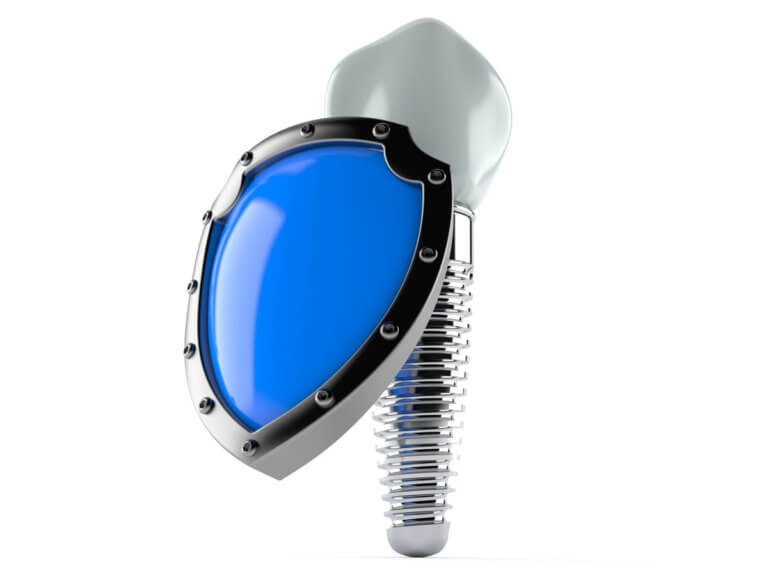Will My Implant Get A Cavity?
The most common problem with real teeth is a dental cavity. Even dental crowns, get cavities. So the question regarding an implant is quite natural. Is it possible that a dental implant would require work due to a cavity? If so, could the cavity get so bad that it would cause the loss of the implant like cavities do to a tooth?
The cause of cavities
To answer this question, an understanding of what comprises a dental cavity becomes essential.
When food debris and remnants are left behind on a tooth, bacteria start to move into the neighborhood. These microorganisms come and begin to feed on the food debris. At the same time, these bacteria produce an acid byproduct. This acid is secreted on the tooth and starts to break down the outer enamel of the tooth. If the process continues, the tooth structure falls apart. When the tooth disintegrates like this, a hole develops. We call the hole that forms in the tooth, a cavity.
Bacterial acids and synthetic materials
We see from this process that cavities form from the acid that is the result of bacteria. This acid is strong enough to eat away at natural objects like teeth. The acid produced is not so strong that it could eat away at something man-made. This fact is fundamental in understanding why cavities develop on teeth. Yet, it does not eat away at porcelain, or metal or white fillings.
Wait for a second! Either through personal experience or hearing from a friend or relative, we know that cavities happen even when a tooth has a filling. Also, when a tooth has a crown, a cavity could appear. How does this happen as these synthetic materials do not break down in the presence of bacterial acid?
Only natural materials decay from bacterial acids
Remember when I said above that understanding that only natural materials could succumb to these caustic products is an essential piece of knowledge. The answer lies in the fact that when a tooth with a filling or a crown demonstrates a cavity, it is the natural tooth structure, not the synthetic material that breaks down.
In other words, it is the tooth under the crown or around the filling that gets a cavity, not the actual crown or the filling.
Armed with this knowledge, we can now return to our original question. Is it possible for an implant to get a cavity? The answer is a resounding “No,” as an implant or its crown has no natural tooth structure. These teeth replacements do not have real teeth that are part of them. They are synthetic without any live tissue to breakdown and form a cavity.
Dental Implants Are an Excellent Solution
Dental implants are an excellent solution to replace missing teeth. They allow me to do heroics that were never possible in the past. I can simplify work and prevent people from moving to a complete denture. And as we discussed, they have the benefit of not decaying like natural teeth so you don’t have to worry about if your implant will get a cavity.
Give us a Call
If you have any questions about dental implants, please call Megan at 440.951.7856. She will set up a visit and we can talk about whatever you would like to discuss. I will answer your questions and explore the appropriate options for you. And last but not least, I look forward to meeting you.
Jeffrey Gross, DDS, FAGD is an Ohio licensed general dentist and is on the staff of Case Western Reserve School of Dental Medicine in the Department of Comprehensive Care.

